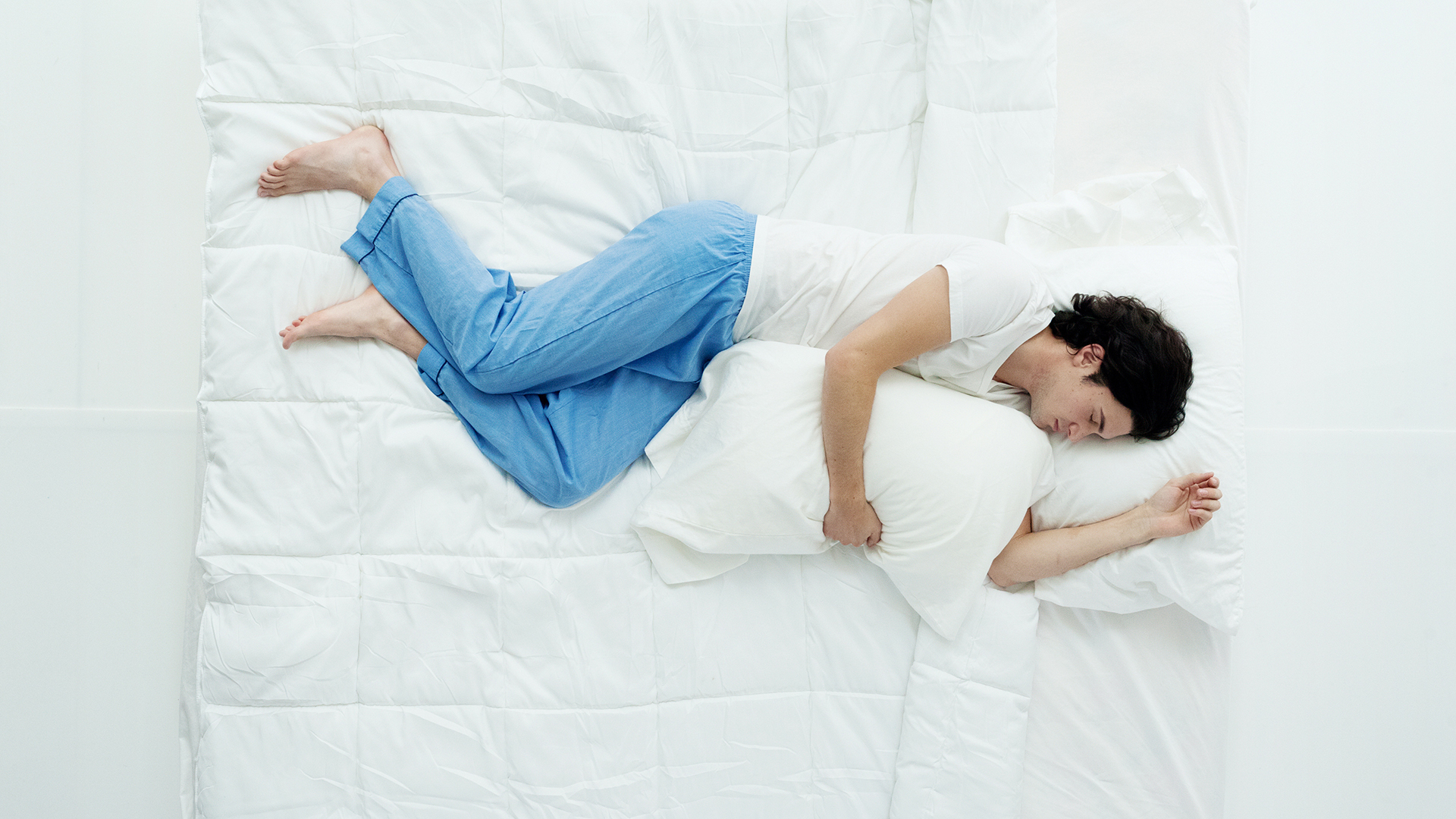Is a blocked nose making you snore? Here are 5 tips for dealing with it
A case of the sniffles can turn quiet snores into a freight train

Sign up for breaking news, reviews, opinion, top tech deals, and more.
You are now subscribed
Your newsletter sign-up was successful
It seems like everyone is struggling with the sniffles lately. While a stuffed nose has you grabbing the tissues during the day, during the night, you might find yourself reaching for the earplugs. If your snoring has gone from gentle droning to chainsaw, your blocked nose might be to blame.
A blocked nose, or nasal congestion, worsens snoring by narrowing the nasal airway. As air struggles to move through this small passage it becomes turbulent, which causes the tongue and soft palate to vibrate. The result? Ramped-up snoring.
But you don't have to switch your best mattress for your sofa just so your partner can get some shut-eye. Here, we’ll explore some simple home remedies to help ease snoring for a blocked nose, so you and the rest of the household can sleep soundly. (If snoring is a serious problem, our how to stop snoring guide has long term fixes plus expert advice on when to visit a doctor.)
5 ways to clear a blocked nose and reduce snoring
We can't promise no snoring, but these 5 methods can help you breathe easier.
1. Have a warm shower
A warm shower is already a great addition to your bedtime routine, helping you relax and wind down in preparation for sleep. If a stuffy nose is making you snore, you might want to try turning the heat up just a bit, as steam can help loosen your sinuses.

2. Drink a peppermint tea
Naturally caffeine-free and soothing, peppermint tea is one of the best things you can drink before bed – and it might limit your snoring. Peppermint is a decongestant, helping open up those airways and loosen mucus. Make sure to breathe in the aroma every time you take a sip.
3. Use the pillow trick
While back sleeping is one of the best positions to sleep in if you’re looking to improve your posture, it can be a menace for snoring, with the tongue, neck, and chin coming together to disrupt airflow. For less snoring, lie on your side instead.
Sign up for breaking news, reviews, opinion, top tech deals, and more.

But that’s often easier said than done. If you find yourself flopping onto your back as you sleep, try the pillow trick: lie on your side with a pillow between your knees, and cuddle another pillow to your chest. Any old pillow will do – you don't need an AI-powered anti-snoring pillow – making it a cheap hack for better sleep.
4. Apply a menthol rub
Menthol rubs help open up the nasal passages, allowing for an easier airflow, leading to less snoring. Simply smear some of your preferred menthol rub on your chest – and a tiny bit beneath your nose – before you climb into bed.
5. Run a humidifier
Colder air is naturally drier air, and in winter, there's a lot of cold air about. While turning up the heating might seem like a good solution, it doesn't actually introduce any moisture, instead drying the air out further. And with the windows kept tightly closed, no extra moisture can get in, and your bedroom air can become incredibly dry.

Without moisture from the air, nasal passages can dry out, leading to the nose and throat becoming inflamed. This limits airflow and increases congestion, resulting in snoring. Running a humidifier introduces much-needed moisture, draining the sinuses and helping reduce snoring.

Ruth is TechRadar’s Sleep Writer. She’s here to help you find the perfect sleep setup for your budget and personal preferences. As well as keeping a keen eye on everything that’s going on in the world of mattresses, she regularly speaks to experts to help you learn how to improve your sleep habits, whether that’s by debunking sleep myths or explaining the science behind it all. Prior to joining the TechRadar team, she wrote features and product guides for new parents hoping to get a decent night's sleep, as well as writing for a variety of online spaces.